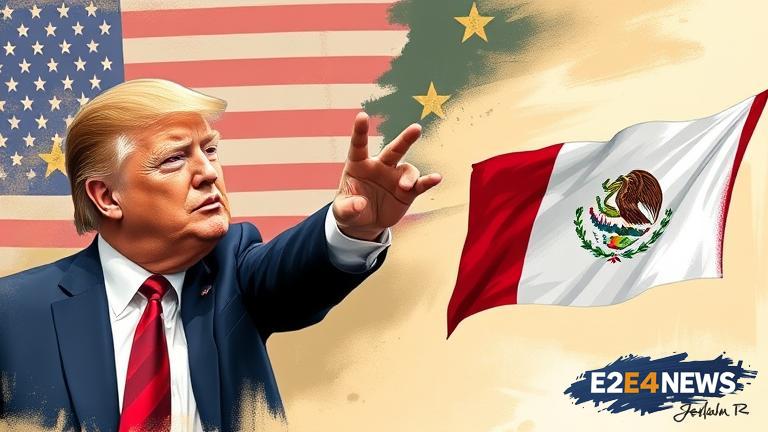In a surprise move, the Trump administration has announced the imposition of a 30% tariff on certain goods from the European Union and Mexico, effective August 1. This decision is expected to have significant implications for major US trading partners and could potentially escalate trade tensions between the US and its allies. The tariffs will apply to a range of goods, including steel, aluminum, and agricultural products. The move is seen as a response to what the US perceives as unfair trade practices by the EU and Mexico. The EU has already threatened to retaliate with its own tariffs on US goods, which could lead to a full-blown trade war. The Mexican government has also expressed its disappointment and concern over the US decision. The tariffs are expected to have a significant impact on US businesses that rely on imports from the EU and Mexico, particularly in the automotive and agricultural sectors. The US Chamber of Commerce has warned that the tariffs could lead to higher prices for consumers and reduced economic growth. The decision has also been criticized by lawmakers from both parties, who argue that it could harm US farmers and manufacturers. Despite the criticism, the Trump administration remains committed to its protectionist trade policies, which it believes are necessary to protect US industries and jobs. The imposition of tariffs is also seen as a negotiating tactic to force the EU and Mexico to agree to more favorable trade terms. However, the move has been met with skepticism by trade experts, who argue that it could ultimately backfire and harm the US economy. The EU and Mexico have already begun to explore alternative trade agreements with other countries, which could further reduce US trade influence. As the trade tensions continue to escalate, there are growing concerns about the potential impact on the global economy. The World Trade Organization has warned that a trade war could lead to a decline in global trade and economic growth. The US decision to impose tariffs on the EU and Mexico is also seen as a challenge to the rules-based international trading system, which has been in place since the end of World War II. The move has been criticized by other countries, including Canada and China, which have also been affected by US trade policies. As the situation continues to unfold, it remains to be seen how the EU and Mexico will respond to the US tariffs and what the ultimate impact will be on the global economy.
